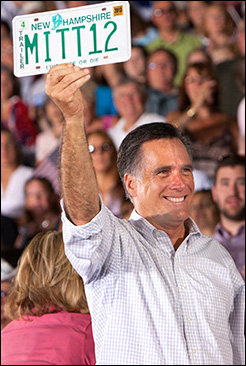The Pew Research Center was also in the field during this same time period (Oct. 4-7), recording the responses of 1,112 likely voters from a polling universe of 1,511 adults. Though a few more Republicans were polled than Democrats (403-396), all the aggregate answers were weighted to bring the sampling universe in line with the actual national totals. The weighted responses gave Romney a similar 66-20 percent split in terms of perceiving the debate winner.
Pew also found Romney gaining in some other key areas. In terms of answering which of the two candidate has new ideas, it is now the Republican who is perceived to have them by a 47-40 percent margin, and he’s pulled even with Obama (47-47 percent) as to who is the stronger leader. Romney also is favored to be more successful in reducing the federal budget deficit (51-36 percent), improving the job situation (49-41 percent), and in handling tax policy (47-43 percent). The president is still perceived as the better person to handle Medicare (51-38 percent), health care (47-44 percent, though that margin swung a net 10 points in Romney’s favor since their Sept. 12-16 poll), and in making wise foreign policy decisions (47-43 percent).
The next presidential debates, scheduled for Oct. 16 and 22 will take on a whole new aura and meaning, after what happened in the first meeting. If Romney has accomplished anything, he has put national debating on center stage.


